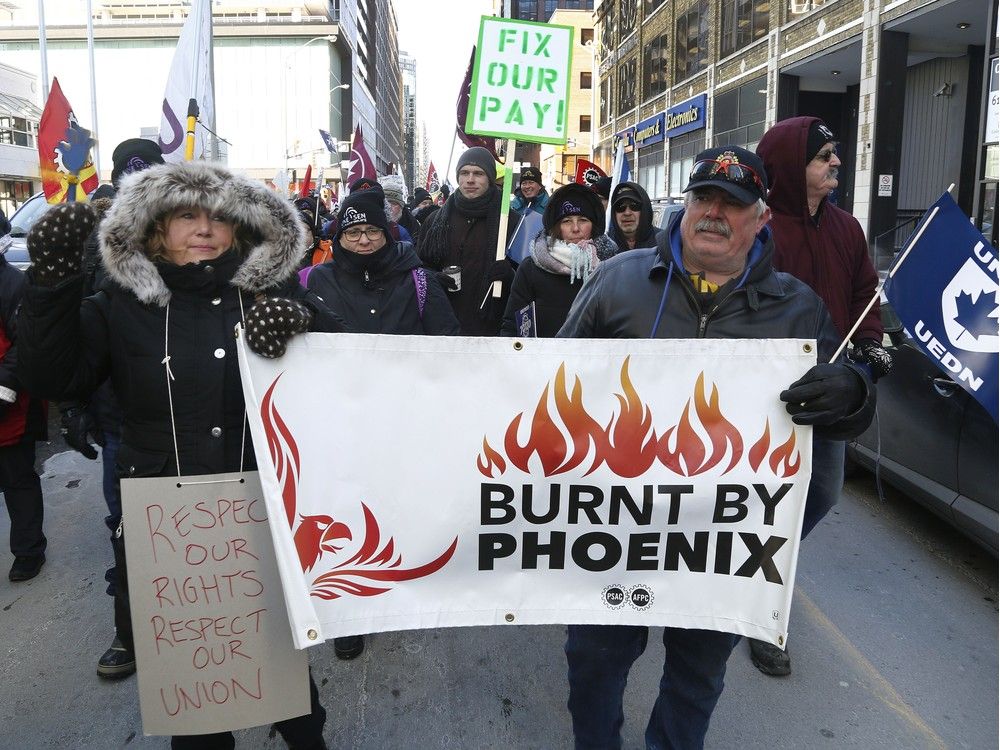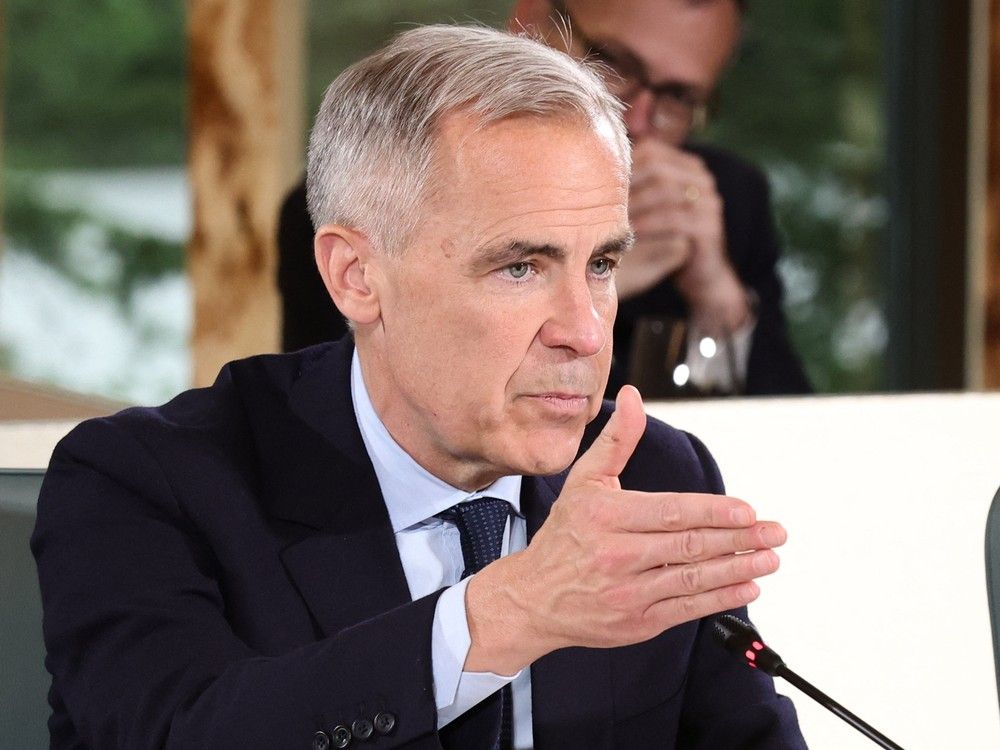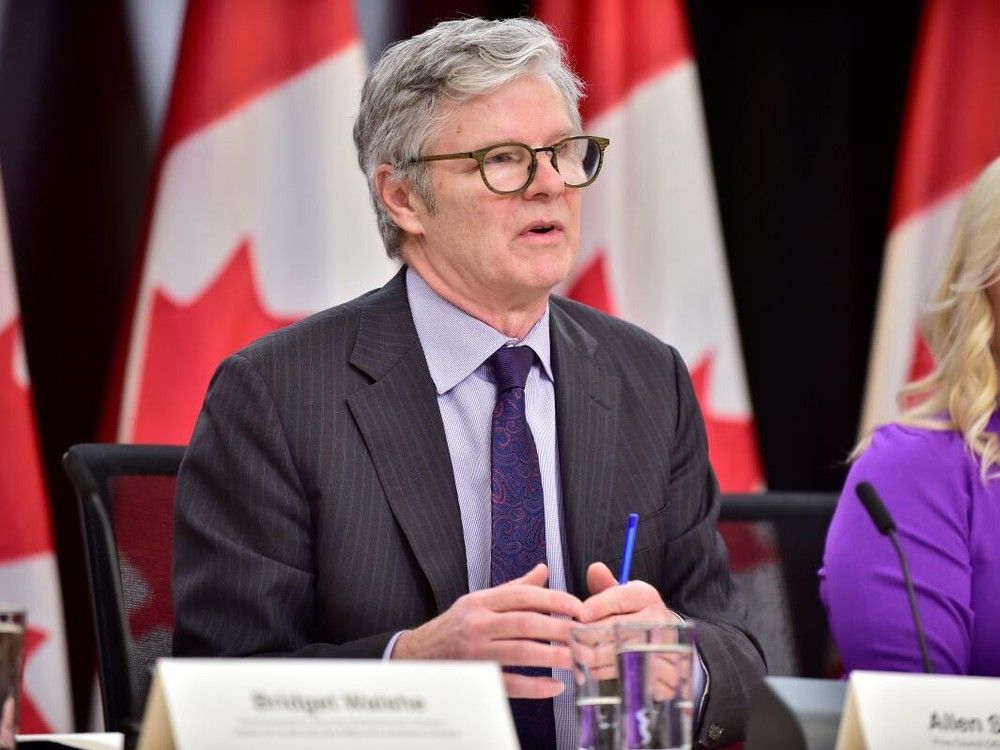National Public Service Week might be over and Parliament may be adjourned for the summer, but public-service news hasn’t slowed down yet.
From the start of the end of Phoenix to the beginning of a new round of negotiations between the government and the largest public sector union, here are five public-service updates you need to know.
- Remote work still a priority for PSAC as it enters bargaining with federal government
- Public servants will still have to deal with Phoenix for years
- Workers strike at Canadian Nuclear Laboratories
- Carney starts his shakeup in top ranks of public service
- Allen Sutherland named new CEO of Institute on Governance

Remote work still a priority for PSAC as it enters bargaining with federal government

The Public Service Alliance of Canada (PSAC) is
once again at the bargaining table
for a new round of negotiations since
the 2023 strike that saw more than 155,000 public servants hit the picket line
.
PSAC officially launched negotiations with the Treasury Board Secretariat for more than 120,000 members, including more than 100,000 public administration workers. The two sides met on June 18 and 19.
PSAC said key issues it will be pushing for in the new collective agreement included better telework provisions, new reproductive language, as well as enhanced overtime.
Language around artificial intelligence is also setting up to be a key battleground as the federal government has signalled its ambitions to transform the public service through the technology.

Public servants will still have to deal with Phoenix for years

For public servants
dreaming of the end of the Phoenix pay system era
, that dream will have to wait for a few more years.
The federal government is set to start its transition away from the plagued system, launched almost 10 years ago, over the next two years. The first departments and agencies that will begin using
its replacement, Dayforce,
will be Public Services and Procurement Canada, Shared Services Canada and the Canadian Nuclear Safety Commission.
After those organizations are onboarded, broader implementation will start in April 2027, said Alex Benay, the associate deputy minister leading the transition to Dayforce.
“We’re working out the full deployment schedule as we speak, is that three years? Is that seven years? We’ll have to see,” Benay told reporters at a press conference on June 23.
Benay said that Dayforce passed 88 per cent of the tests of the 230 scenarios tested. For the 12 per cent that didn’t pass, Benay pointed to technical issues, problems with internal processes and coding problems.
Benay confirmed that the federal government will need to pay for both Phoenix and Dayforce concurrently as the transfer will take an “iterative approach” over a number of years. However, he argues it is safer to avoid the “big bang deployment approach” of transferring all data to another program, which happened with the phoenix pay system.
“So how quickly can we change our processes to adapt in order to adopt the new system will be a big part of what we do as well, which is a mistake we made last time we wanted the system to adapt to us, that created 3,000 customization lines in an off the shelf system and a lot of bad decisions,” Benay said of the problems with phoenix.
The federal government has spent more than $5 billion fixing errors that started soon after Phoenix was launched in 2016. The government has used artificial intelligence to make incremental progress clearing a backlog of pay complaints associated with the system.
In April, there were 327,000 transactions remaining to be processed
—
down from 402,000 transactions in October 2024.

Workers strike at Canadian Nuclear Laboratories

Nuclear scientists and engineers at the Chalk River research facility voted to continue their strike action that started in late May.
The group of workers, represented by the Professional Institute of the Public Service of Canada (PIPSC), voted against the latest settlement offer by their employer Canadian Nuclear Laboratories, setting the stage for the strike to resume on June 22.
The scientists and engineers originally launched rotating strikes on May 26, but paused them on May 30 to allow for a vote to take place on the offer.
The rejected agreement included limited changes from previous offers, according to PIPSC. The union said in a news release that it is seeking wage increases and improved health and dental benefits that have “remained unchanged for 25 years.”
The union added that the workers “
ensure the safe operation of
nuclear
reactors and support critical radioactive waste management and environmental remediation projects across Canada,” the union said in a press release. “
Their expertise in
nuclear
medicine research impacts the health of countless
Canadian
s.”
Sean O’Reilly, the president of PIPSC, told the Ottawa Citizen that the union is “open to a meeting” with the employer “at any time.” Negotiations have been ongoing since the last collective agreement expired at the end of 2023.
Canadian Nuclear Laboratories did not immediately respond to a request for comment.


Carney starts his shakeup in top ranks of public service
On June 20, the Prime Minister’s Office announced four changes at the top ranks of the public service.
Jean-François Tremblay, the deputy minister at Environment and Climate Change Canada, will be shuffled out of this role on June 30. He will become a senior official at the Privy Council Office while he prepares to become the Canada’s ambassador to the Organisation for Economic Co-operation and Development.
Tremblay will be replaced by Mollie Johnson, a deputy secretary to the cabinet at the Privy Council Office.
Nancy Hamzawi, the current executive vice-president of the Public Health Agency of Canada, has been promoted and will become president of that agency.
Alison O’Leary, an assistant deputy minister at the Department of Finance, will become the associate deputy minister of the department on June 30.
The Prime Minister’s Office also announced that Kaili Levesque, an associate deputy minister at Fisheries and Oceans, will directly support the secretary of state for nature, Nathalie Provost.
Mark Schaan, the deputy secretary to the cabinet on artificial intelligence, will directly support Evan Solomon, the new AI minister.
Experts expect that more shakeups are coming to the public service, particularly after the
appointment of Michael Sabia as the new clerk
of the Privy Council.


Allen Sutherland named new CEO of Institute on Governance
The Institute on Governance has a new CEO and president.
Allen Sutherland, will lead the IOG, an Ottawa think-tank focused on governance in the public sector.
Sutherland spent more than 25 years in the public service, recently serving as an assistant secretary to the cabinet within the Privy Council Office.
“Few people in Canada have engaged more deeply with governance issues over the past decade than Allen,” said Malcolm Brown, chair of the IOG’s board of directors, in a news release.
“His extensive experience at the centre of government, his deep understanding of the principles that underpin democratic institutions, and his unwavering commitment to public service make him exceptionally well-suited to lead the IOG into its next phase of impact and growth.”
Sutherland takes over from interim CEO David Murchison.
Our website is your destination for up-to-the-minute news, so make sure to bookmark our homepage and sign up for our newsletters so we can keep you informed.
Related
- Dayforce confirmed as replacement for Phoenix as federal government pay system
- DeSousa: Now is the time to strengthen Canada’s safety net



